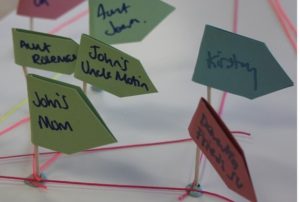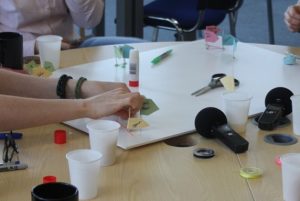Lucille Valentine from Newcastle Business School attended a recent joint ESRC IAA event held in Durham University with Professor Colin Talbot on Blogging for Impact. Here she tells us the main messages from the afternoon.
Colin Talbot’s message is clear: blogging is a long-term project and ultimately the impact depends on the followers and the reach of those followers. There is no quick hit to be had. So, when his blog, like that of other researchers, is used to discuss parts of his research findings because smaller research slices can be released by blog, the impact depends on how many and of what sorts of people get to read it and what they do in response to reading. And it takes a while to build a following.
In his case he has been building blog readers and Twitter followers, LinkedIn connections and Facebook followers for at least ten years.
The blog needs to be read by influencers in your field and by interested people beyond your immediate circle. He himself actively promotes new blogs through all his connected social media channels and he recommends asking influential connections to promote / retweet a few important blogs a year. Of course, material is not just research, he also discusses other people’s work, he links to his publications in other places, he does book reviews and, well, I guess that it is easy enough to check the range yourself. He is easy enough to find.
The blog is not the source of the impact, rather it can be the start point. It sometimes leads to invitations to share the longer work behind the blog, to write for newspapers and present to policymakers. Further to this it has happened to himself and to colleagues that a short blog – possibly on a topical issue but based on research – is picked up by someone in the news and amplified. In this way, what started as a blog has led to a request for a longer response and has, in a short space of time, led to requests to present to government select committees and the world bank.
Should the whole world be your goal? No. If you work in a narrow field but everyone in that field follows you then you have 100% impact, so the blog should appeal to them.
Can blogging be controversial? Yes. Academics may try and bite into your material. But you should be aware of the audience of the blog and this can mean that the material is not academically written and does not cover all the angles. In a recent example, he wrote a blog to explain, in plain English, what is missing from the budget. When he was lambasted by another academic he could cope and tell them to “read my book on the topic” and let it rest there because he knows what the purpose of the blog was.
You can find Colin’s blog here and many thanks to Lucille for contributing to ours!



